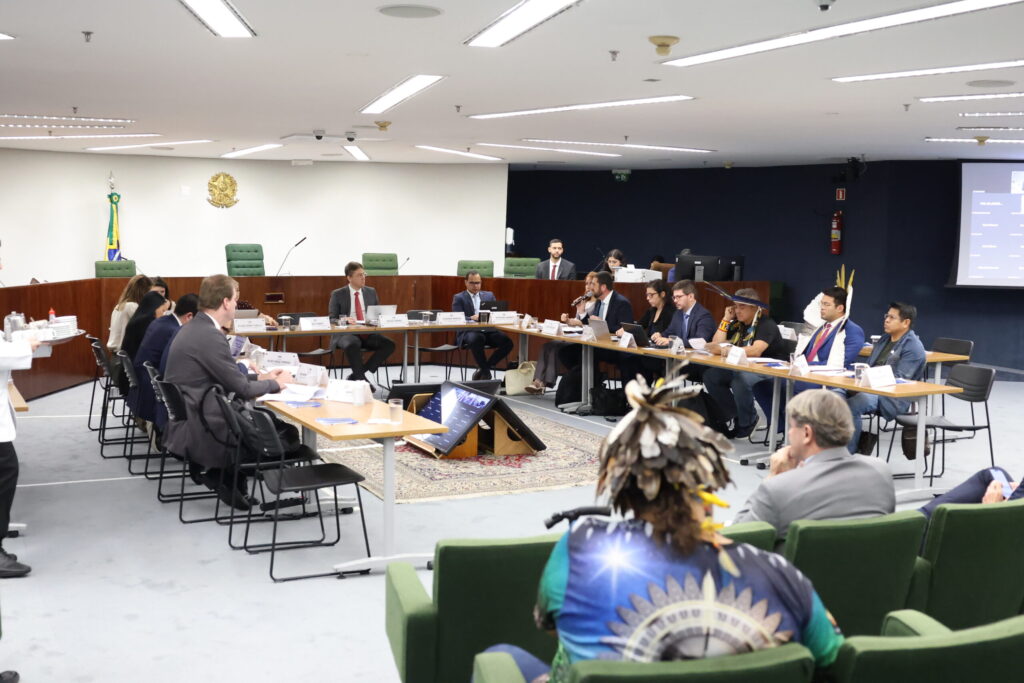Time Frame committee ends on the last meeting, with no consensus
After months of debate in the house of yes, the members of the committee were unable to reach a consensus, unlike in almost all of the points.
AI generated audio
No compromise. Thus ended this past Wednesday (2) of the last hearing of the special committee of the Federal Supreme Court (STF) (STF), which looks at the Time Frame Law (number 14.701/2023) on the demarcation of indigenous lands in Brazil.

In the final discussion, the participants of the meeting discussed the proposal of the office of the prime minister Gilmar Mendes, a reporter of the action under discussion in the SUPREME court, which was introduced by the european Union. If approved by the commission, the text, then it would be judged by the reporter, and then put into the evaluation of the other ministers of the SUPREME court who would vote in favor of, or against his / her approval.
However, all of the members of the committee were differences in almost all of the points, and you are unable to reach an agreement. The same is true for the two months of debate in the chamber of the board. In disagreement with the result of the discussion of the Articulation of the Indigenous Peoples of Brazil (APIB) has announced the departure of the commission, and in August, 2024.
At that time, with representatives from the APIB read out a letter and pointed to the lack of a space in which to negotiate with the fundamental rights of indigenous peoples, such as the right to the demarcation of the land is already protected by the decision of full-time (nine-to-two vote of the u.s. Supreme Court, which ruled on the unconstitutionality of the decision of the framework over time.
In addition to the thesis, in the framework of the time, to the issues of greatest disagreement among the participants were the exploration, trade, and mineral lands of indigenous peoples, it was also a breach of the text of the Law, 14.701, and a discussion of the claims.
In the course of the hearings, the most controversial have been included in the proposed definition of a date for a milestone, time involved, and the permit to mine on indigenous peoples ‘ lands have already drawn.
The prime minister has stated that the constitutionality of the landmark in time, it determines that it can only be marked in the lands occupied by indigenous peoples in the Constitution, and on 5 October 1988, and has already been set in order by the Supreme, and it wouldn’t be a discussion.
In spite of this, the exploitation of the mineral resources and strategies for indigenous peoples ‘ lands won in a breath, and it should be discussed on a future commission. With the announcement of the withdrawal of the subject of the conciliation committee was made at the opening of the session of the last week (the 27th).
The SUPREME court ruled the law unconstitutional, the decision of the framework time, in September, 2023. However, a week later, the Senate passed a bill in the opposite direction, creating a framework for temporal, and contains other provisions that are in violation of the rights of indigenous peoples. The project was vetoed by the president, Luiz Inácio Lula da Silva (PT), but the ban was overturned by the Congress and the several cases on the subject have been filed in the Supreme Court.
